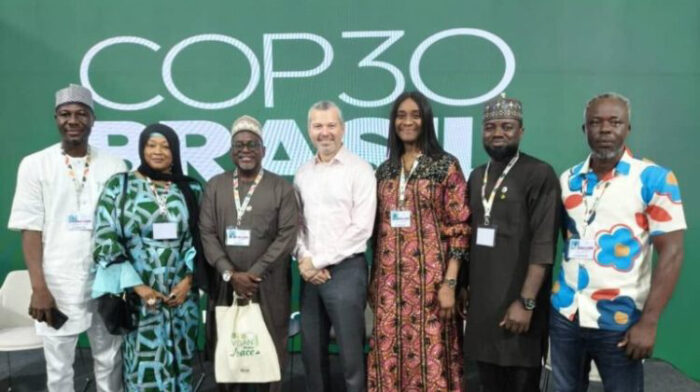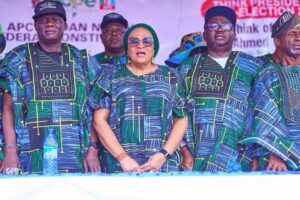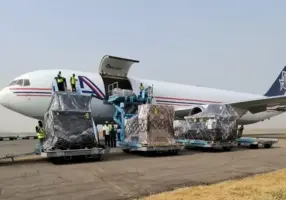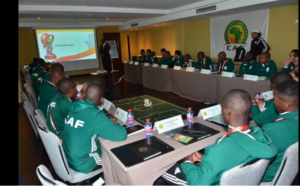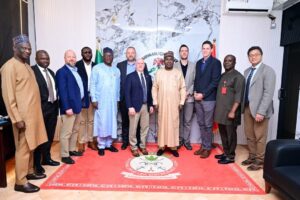Nigeria has taken a major step in Africa’s push toward greener shipping, as the Nigerian Maritime Administration and Safety Agency (NIMASA) unveiled a groundbreaking Public–Private Partnership model for real-time maritime emissions monitoring at the UNFCCC COP30 summit in Belém, Brazil.
The highlight of the presentation was the Nigerian Maritime Continuous Emissions Monitoring System an innovative digital platform co-developed with researchers from University College London (UCL).
The system marks Nigeria’s most advanced move yet toward meeting the International Maritime Organisation’s (IMO) decarbonization targets and accelerating the country’s maritime energy transition.
Speaking at a NIMASA-hosted side event, Dr. Oma Ofodile, Director of the Marine Environment Management Department, who represented the Director-General, Dr. Dayo Mobereola, said the new system is the product of years of technical groundwork.
According to Ofodile, “NIMASA has been at the forefront of coordinated efforts in advancing the IMO energy transition strategies through digital innovation that is expected to transform ambition into measurable progress.”
Read Also
NIMASA’s path to COP30 has been marked by increasing engagement:
• At COP28, the Agency advocated for a continental alliance in support of IMO’s greenhouse gas reduction programmes.
• At COP29, it organised expert panels and published Nigeria’s first verifiable maritime emissions inventory, produced with UCL experts, signalling its readiness for low-carbon shipping.
Now at COP30, the Agency has moved fully into the implementation stage, unveiling a continuous monitoring system designed to enhance transparency, strengthen compliance, and generate reliable data for shaping national and regional maritime decarbonization policies.
Nigeria’s leadership drew commendation from Mr. Roel Hoeders, who represented the IMO Secretary-General.
He praised NIMASA for hosting a “novel session to deepen discussion and provide a strategic outlook on how Africa can navigate the challenges of shipping energy transition.”
The side event also featured contributions from IMO officials, UCL researchers, maritime regulators from Ghana, Kenya, and Tanzania, representatives of Lagos State’s Ministry of Planning and Budget, the Federal Ministry of Marine and Blue Economy, and the Nigerian Ports Authority (NPA).

